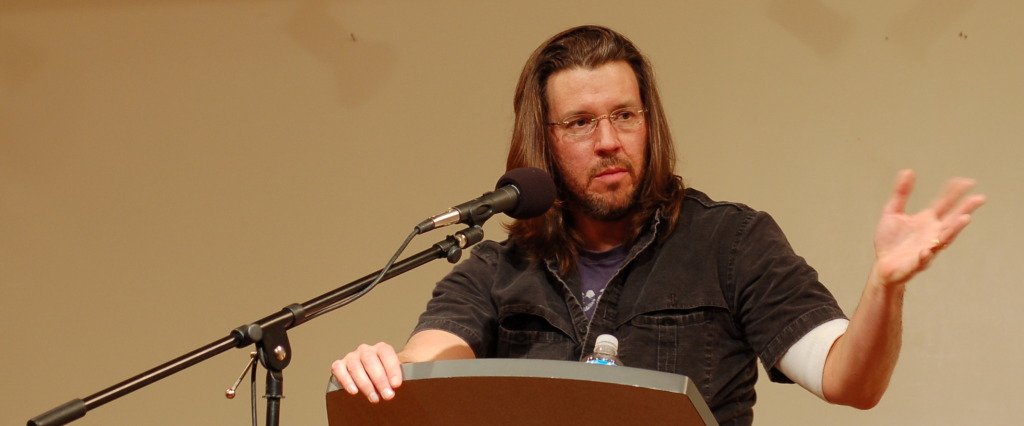This week Broad Street recommends Josh Roiland‘s Fall 2013 article “David Foster Wallace and the Nature of Fact,” which originally appeared in Literary Journalism Studies and was recently made available by the good people at Longreads. In the article, Roiland investigates accusations about Wallace’s literary journalism, including allegations of “embellishments” and invented dialogue.
Roiland reminds us of some of the characteristics that made Wallace’s nonfiction writing so engaging and fresh to begin with—most notably his “ability to imbue a story with larger significance beyond the ostensible subject.” Recalling the author’s 2006 cover story on tennis star Roger Federer for PLAY, a now-defunct sports supplement of the New York Times Magazine, Roiland writes,
“Several tangential topics emerge in the PLAY cover story beyond the standard profile of the Swiss phenom. Wallace discourses on the physiology of the human body, the transcendence of athleticism to the sublime, the difference between live spectatorship and televised tennis, the engineering and effectiveness of modern tennis rackets, and the reconciliation of divine grace and mortality.”
Despite the curiosity and depth with which Wallace approached journalism, the author has, Roiland points out, been accused of exaggeration and downright invention. D.T. Max’s 2012 biography Every Love Story is a Ghost Story sheds particular light on some of the factual liberties taken by Wallace in well-known essays such as “Tennis, Trigonometry, Tornadoes” (1990) and “Ticket to the Fair” (1994), both originally printed in Harper’s. Roiland notes that even Colin Harrison, Wallace’s editor at Harper’s, admitted to turning a blind eye to the author’s inventions “in service to Wallace’s comic vision.”
Arguing that Wallace saw his nonfiction writing as something of a genre-bending hybrid, free of “contemporary literary journalism’s dogmatic allegiance to facticity,” Roiland cites Wallace’s 2001 review of the anthology The Best of the Prose Poem: An International Journal (which was published by Rain Taxi) in which Wallace attributes the existence of alternative literary forms to a need to
“….comment on, complicate, subvert, defamiliarize, transgress against, or otherwise fuck with received ideas of genre, category, and (especially) formal conventions/constraints…putatively ‘transgressive’ forms depend heavily on received ideas of genre, category, and formal conventions, since without such an established context there’s nothing much to transgress against.”
For more analysis of Wallace’s thoughts on the division between fiction and nonfiction, read the full article here.
And, for more from Wallace himself, check out the video below of his commencement speech to Kenyon College in 2005 entitled “This Is Water,” in which he states at 17:35: “The only thing that’s capital-T True is that you get to decide how you’re gonna try to see it.”









